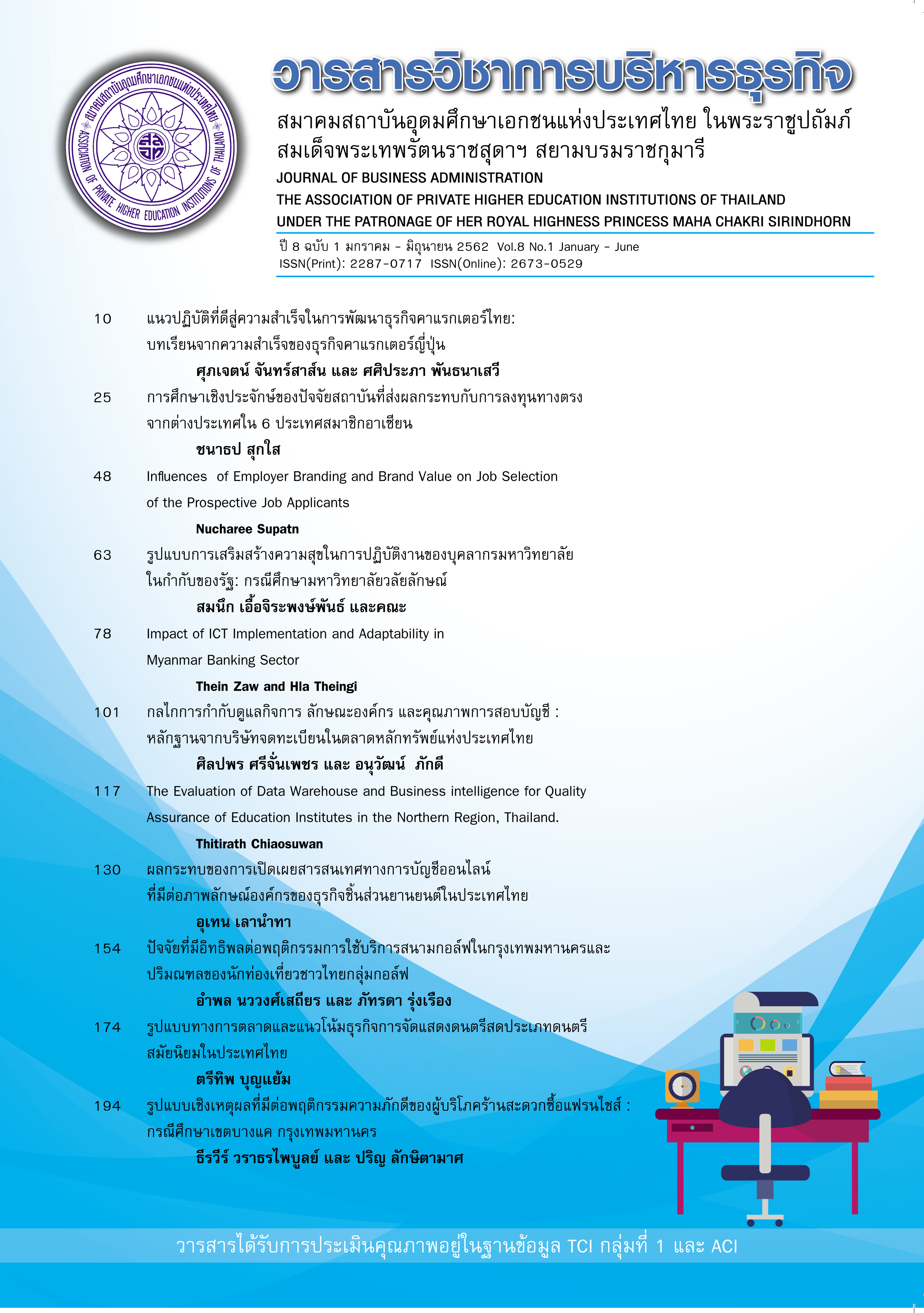Causal Model of Loyalty Behavior of Customer’ Franchise Convenience Stores: The Case Study of Bang Khae, Bangkok
Keywords:
Consumer Experience, Customer Satisfaction, Customer Loyalty, Franchised Convenient StoresAbstract
This research studies the causal model between consumer experiences, consumer
satisfaction and consumer loyalty in franchised convenient stores with a quantitative method. The
objective of study is to study the factors to influence satisfaction and behavior loyalty of consumers
in Thailand franchise. The samples were collected from consumers living in some populated areas
in Bangkok. These respondents shopped at the studied convenience stores: Seven Eleven, Family
Mart, and Lawson108. The research was carried out using structural equation modeling (SEM)
analysis of 400 sample sizes. The results found that creating a positive experience affected
satisfaction by can predict satisfaction at 68.7%. The experience is not directly affected to behavioral
loyalty but indirectly affected by satisfaction, and predict behavior loyalty at 23.4%. This study
can be implied to strategic market planning to create a good experience for consumers, particularly
about in-store facility and personal services.

Downloads
Published
How to Cite
Issue
Section
License
บทความที่ลงตีพิมพ์ในวารสารวิชาการบริหารธุรกิจ สมาคมสถาบันอุดมศึกษาเอกชนแห่งประเทศไทยต้องเป็นบทความที่ไม่เคยได้รับการตีพิมพ์เผยแพร่ หรืออยู่ระหว่างการพิจารณาตีพิมพ์ในวารสารอื่นๆ การละเมิดลิขสิทธิ์เป็นความรับผิดชอบของผู้ส่งบทความโดยตรง

